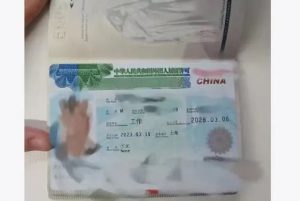Guide to Visa & Residency for Overseas Chinese: Key Distinctions & Steps
Navigating the landscape of visa and permanent residency for overseas Chinese involves understanding the significant differences between overseas Chinese, Chinese descendants, and Chinese expatriates. This guide aims to shed light on these distinctions and outline the essential steps and considerations for overseas Chinese who are in the process of applying for visas or permanent residency in China.

-
Distinctions Among Overseas Chinese, Chinese Descendants, and Chinese Expatriates
Overseas Chinese are individuals of Chinese origin who have acquired foreign nationality, including their descendants who are also foreign nationals.
Chinese Descendants refer to individuals of Chinese ancestry whose nationality is not Chinese.
Chinese Expatriates are Chinese citizens living abroad, divided into those who have obtained long-term or permanent residency after living continuously for 2 years in another country, and those who have gained legal residency status for more than five years without long-term or permanent residency.
-
Visa on Arrival for Family Visits
For overseas Chinese in urgent need to visit China for family reunions or personal matters, a visa on arrival option will be available starting January 11, 2024, at selected ports. This requires presenting an invitation letter and other relevant documentation to obtain a port visa, commonly referred to as a “visa on arrival.”

-
Family Reunion Residency
Overseas Chinese not employed in China can apply for family reunion residency, which involves two main steps:
Before Entry: Applying for a Q1 visa, intended for family members of Chinese citizens or expats with permanent residency in China who wish to live in China for family reunion purposes.
After Entry: Converting to a family reunion residence permit by visiting the local immigration office in the Chinese relative’s registered domicile or where the Chinese relative holds a residence permit.
Preparing and authenticating documents, such as marriage or birth certificates, is essential and may take about two months.

-
Permanent Residency Favorable Policies
China has rolled out favorable policies for overseas Chinese aiming for permanent residency:
Ph.D. holders: Foreign nationals of Chinese descent with a Ph.D. working in China are eligible, provided they have a work permit and a residence permit for work.
Those who work in special areas: Foreign nationals working in designated areas like Zhongguancun or the Shanghai Lin-gang Special Area, meeting specific talent assessment criteria or income thresholds.

-
Additional Documentation Requirements
For work permit applications, overseas Chinese must provide proof of renunciation of Chinese nationality. Permanent residency applications require additional documents, including proof of naturalization, previous foreign residency permits or settlement proofs, and, if applicable, documentation of name change along with original and authenticated identity verification materials.
-
Nationality Verification for Dependent Applications
Children of overseas Chinese, or those with one parent holding Chinese nationality, must have their nationality verified by immigration authorities as part of the process for applying for permanent residency, either as dependents or under the family reunion category. This verification must confirm their status as foreign nationals before they can proceed with their application.

-
Tightening of Five-Year Work Residency Permit Policies
The policy for granting five-year work residency permits to overseas Chinese has become more stringent. Based on our extensive experience with applications, individuals must now have a history of at least two prior applications for work residency permits and provide employer-issued guarantee documents.

For overseas Chinese navigating the visa and permanent residency application landscape, understanding the specific requirements and preparing the necessary documentation is paramount. It is advisable to seek expert guidance, such as from professionals to navigate these processes effectively and ensure compliance with all regulatory requirements.

